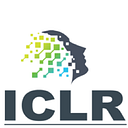By ICLR 2021 Senior Program Chair Katja Hofmann (Microsoft Research), and Program Co-Chairs Ivan Titov (U. Edinburgh / U. Amsterdam), Naila Murray (Facebook AI Research), and Alice Oh (KAIST)
ICLR 2021 is now behind us and looking back, we thoroughly enjoyed the spotlight and poster presentations, our keynote talks and live Q&As, the socials and mentoring sessions, and the opportunities to catch up with our colleagues around the world at the ICLR cafe. Videos of all keynotes and oral sessions are available to the public at https://slideslive.com/iclr-2021 and at the virtual conference site https://iclr.cc/virtual/2021/calendar. As we reflect on the last 12 months spent preparing for ICLR 2021, we wanted to share with you some of our observations and lessons learned.
The first is that ICLR continues to be a growing community. To illustrate this, for ICLR 2021 we received 3014 full submissions compared to 2604 in 2020, and at the conference there were 6194 registrations, compared to 5622 registrations in 2020. This growth requires continuously reinforcing and refining our community practices, including our submission authoring and review process, our codes of conduct and ethics guidelines, and our diversity and inclusion efforts.
When preparing the review process last year, there was a great deal of uncertainty around the number of submissions to expect, given the extraordinary circumstances we all faced. We also faced a compressed timeline due to our decision to set the submission deadline after the NeurIPS 2020 acceptance decisions. Given these factors, we introduced a mandatory abstract submission stage, which allowed us to get a sense of whether our reviewer and area chair pools were sufficiently large and topically diverse. We also adopted a Code of Ethics this year, and we’ll soon publish a separate blog post dedicated to our experiences putting the CoE into practice at ICLR 2021.
Our conference schedule featured round-the-clock live content, in order to be inclusive to attendees in different time zones around the world. For the spotlight and poster sessions in particular, we struck a balance between topical coherence and the preferred session time-slots selected by presenters. We generally found a good balance, although sessions falling into some time periods were over-subscribed (and we thank the authors for their flexibility in these cases!).
This was our second virtual ICLR and, having learned a lot from our successful 2020 experience, we were pleased to find that the 2021 conference went quite smoothly. For glitches that did arise, our 200-strong volunteer team, as well as the EventHosts and SlidesLive teams, were quick to respond and resolve. Conference attendees hailed from more than 60 countries around the world, and every continent except for Antarctica (maybe next year!). Throughout the week, there were 16,624 views of our different livestreams. We were very pleased with the degree of engagement in the mentoring program using the Mementor portal, which was organized by Emtiyaz Khan, Marc Deisenroth, and Hendrik Strobelt. In total, about 1950 people signed up for Mementor and there were 42 mentoring sessions throughout the conference week. It would be very helpful to us to hear about your experiences at ICLR 2021 so we encourage those of you who attended to fill out the survey sent by email.
ICLR 2021, as with every edition, is a large team effort, and the program committee would once again like to thank everyone who made it possible, including the other organizing committee members, the authors, reviewers, area chairs, volunteers, keynote speakers, the OpenReview team, the Event Hosts team, and the SlidesLive team. Lastly, we would like to wish the incoming general chair Katja Hofmann (Microsoft), senior program chair Yan Liu (University of Southern California), and program chairs Yejin Choi (University of Washington), Marc Deisenroth (UCL), and Chelsea Finn (Stanford University), every success in putting together an amazing ICLR 2022.
